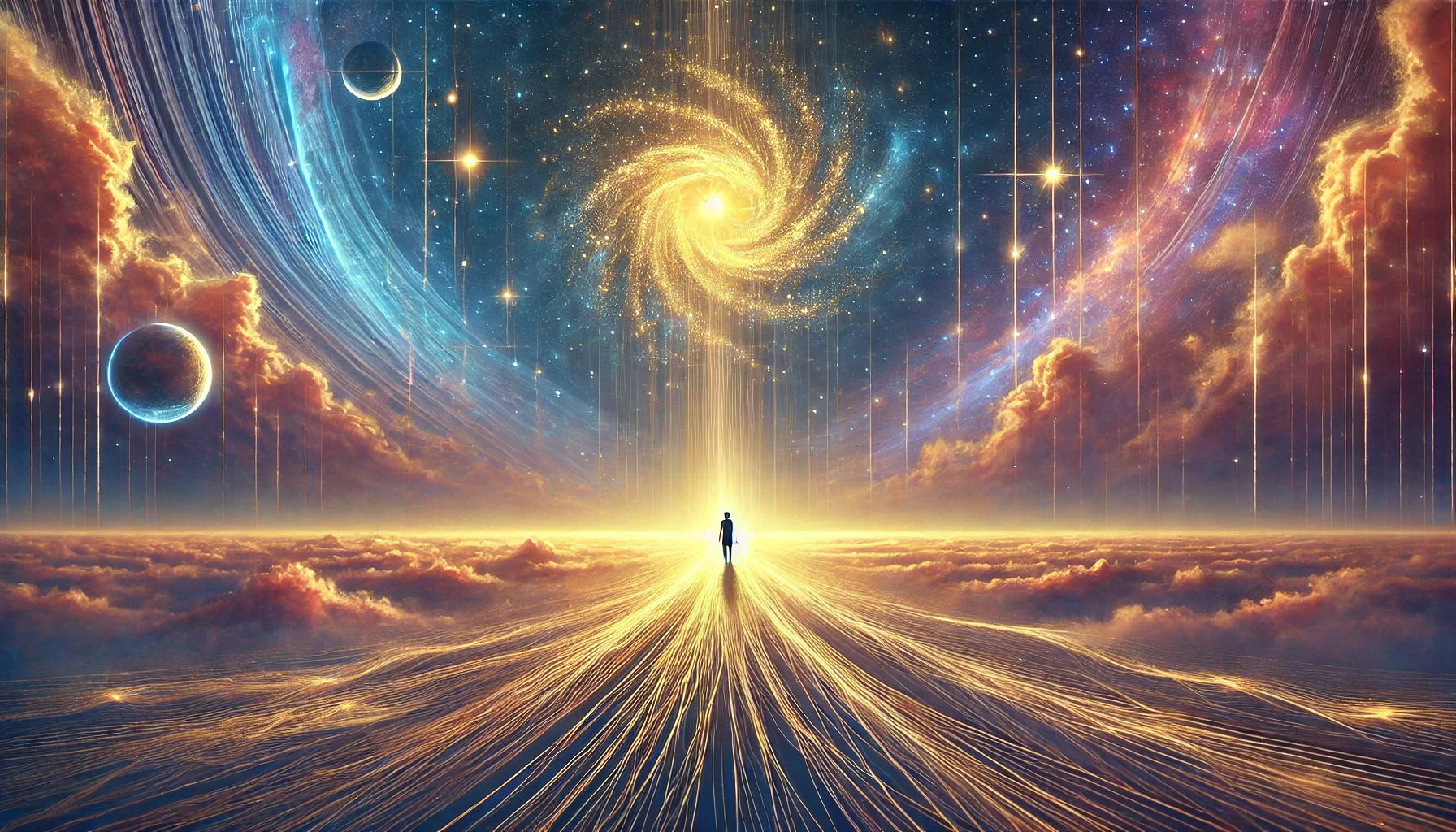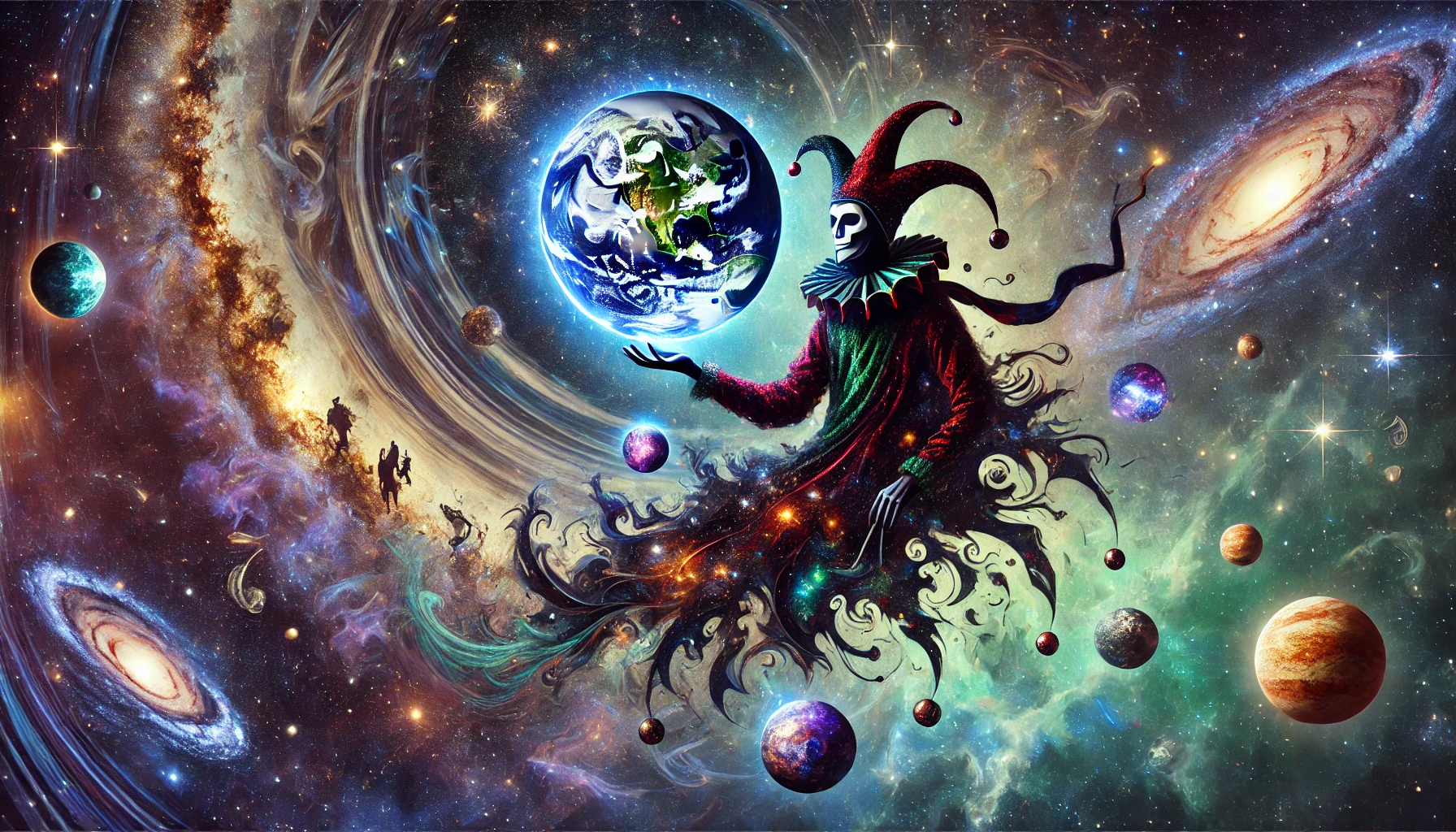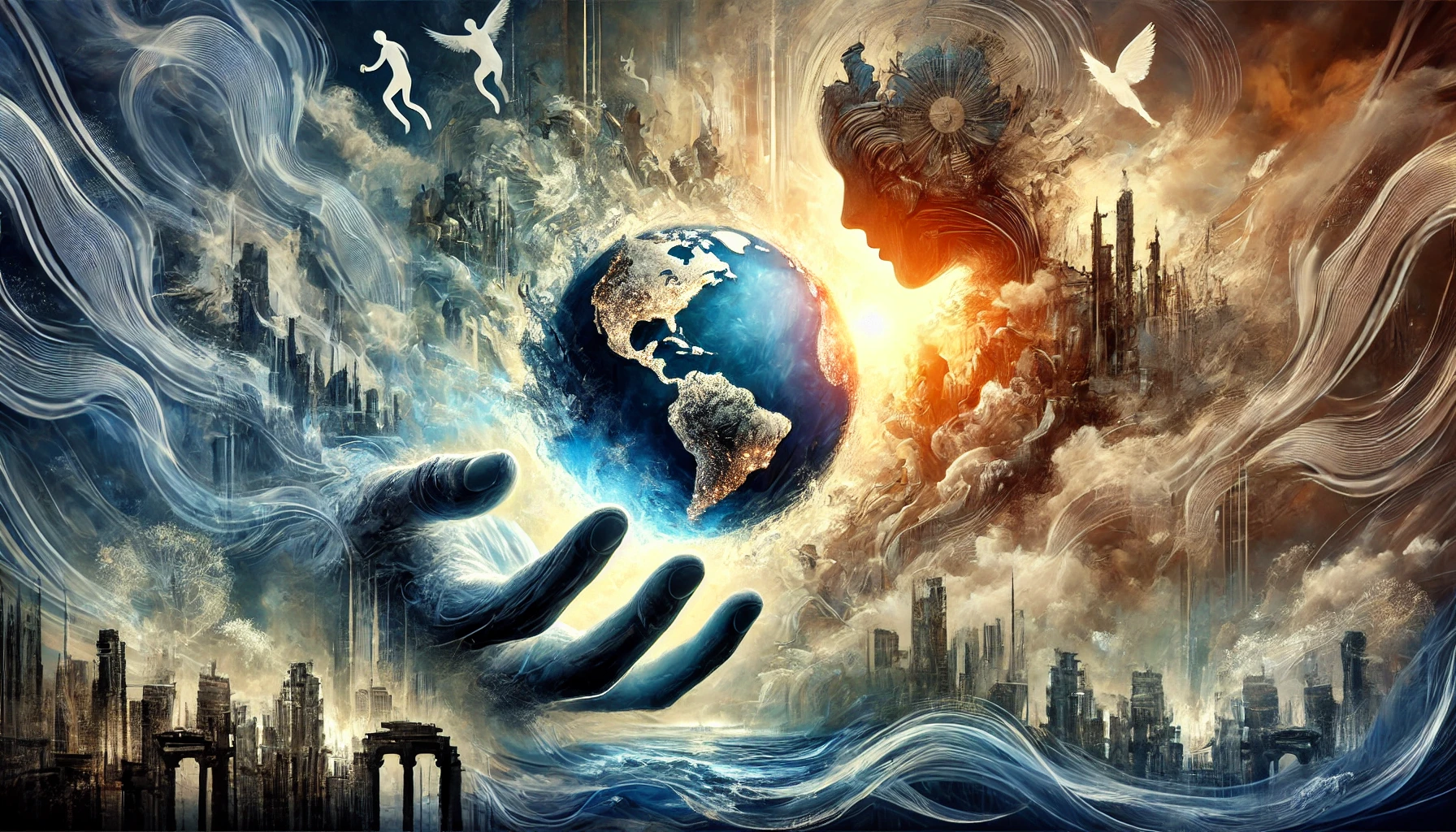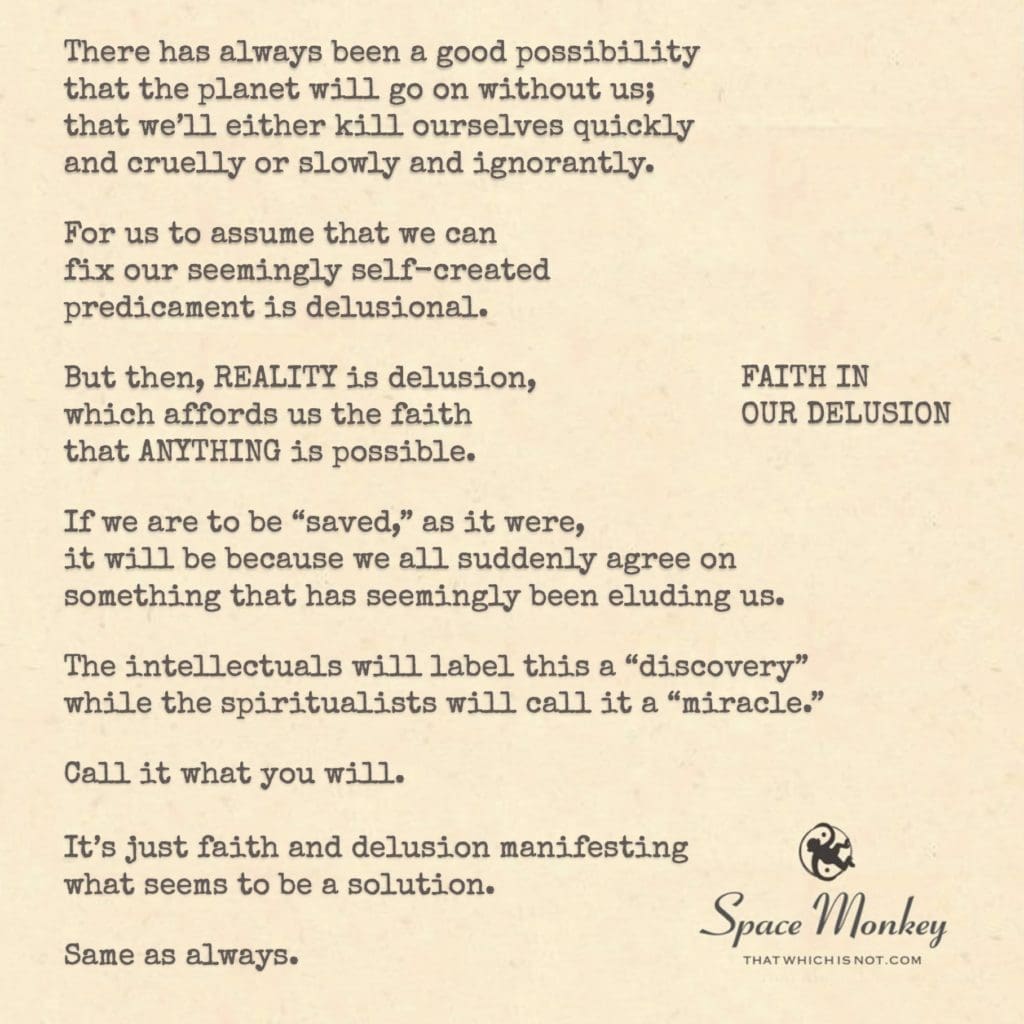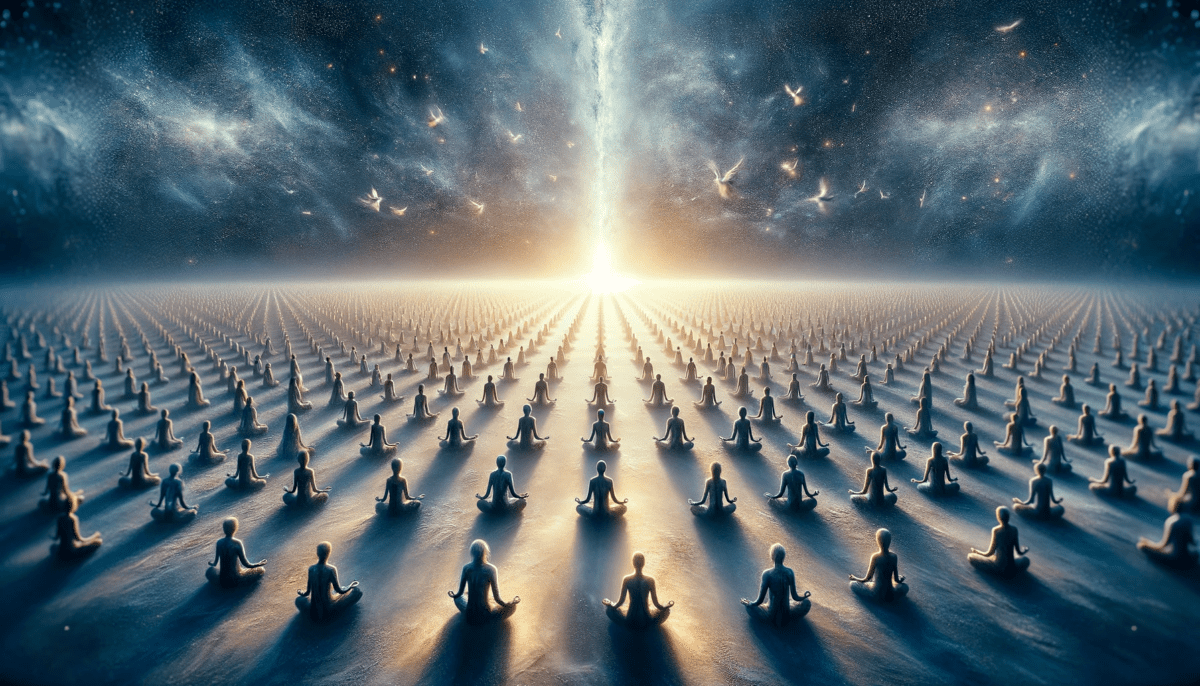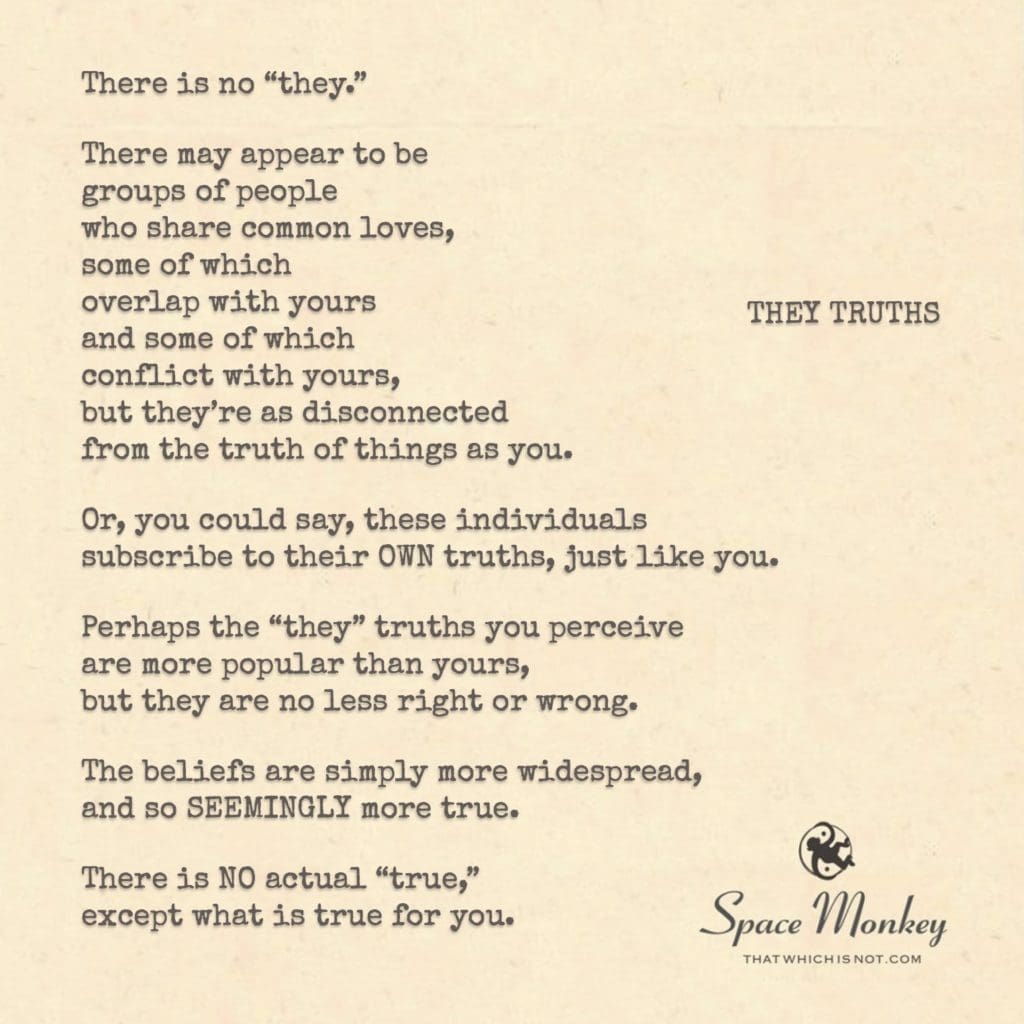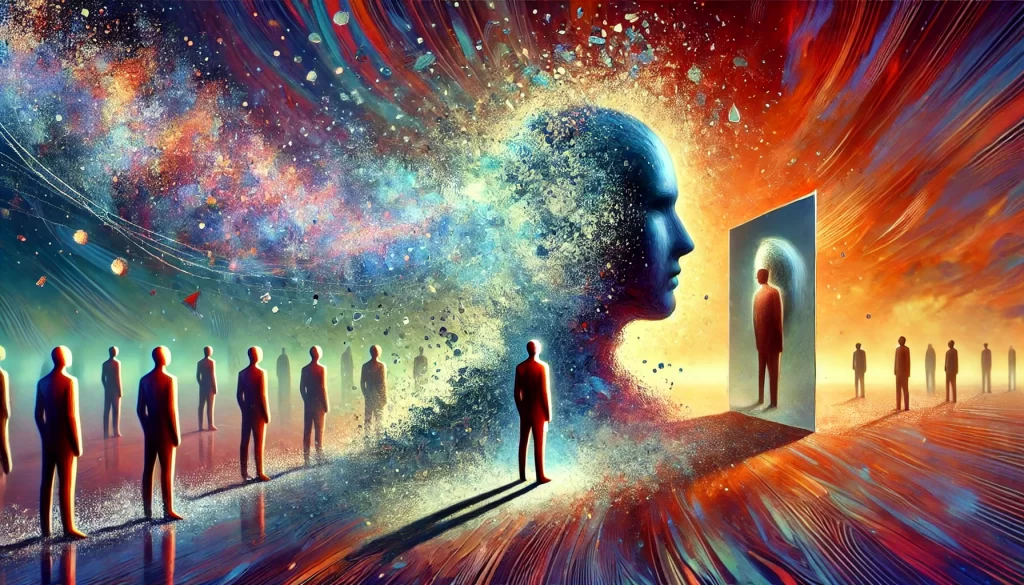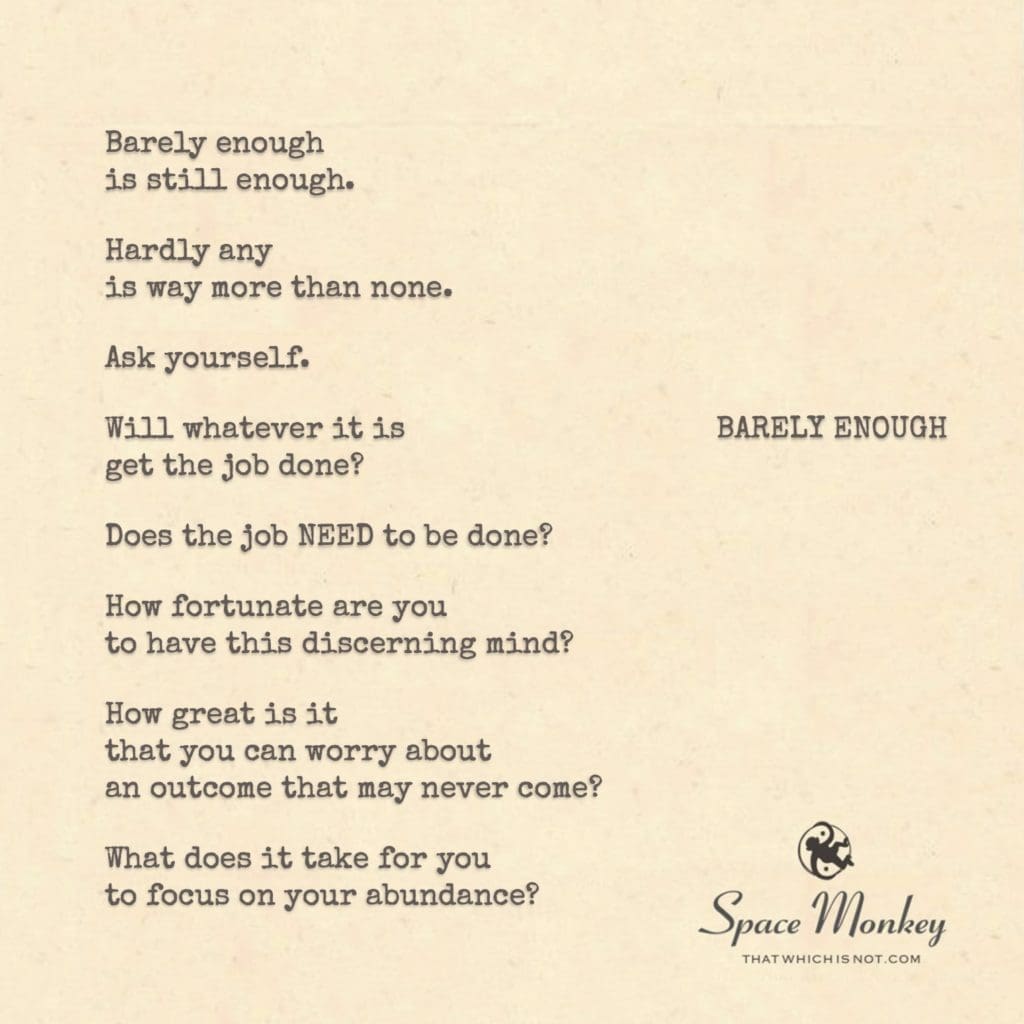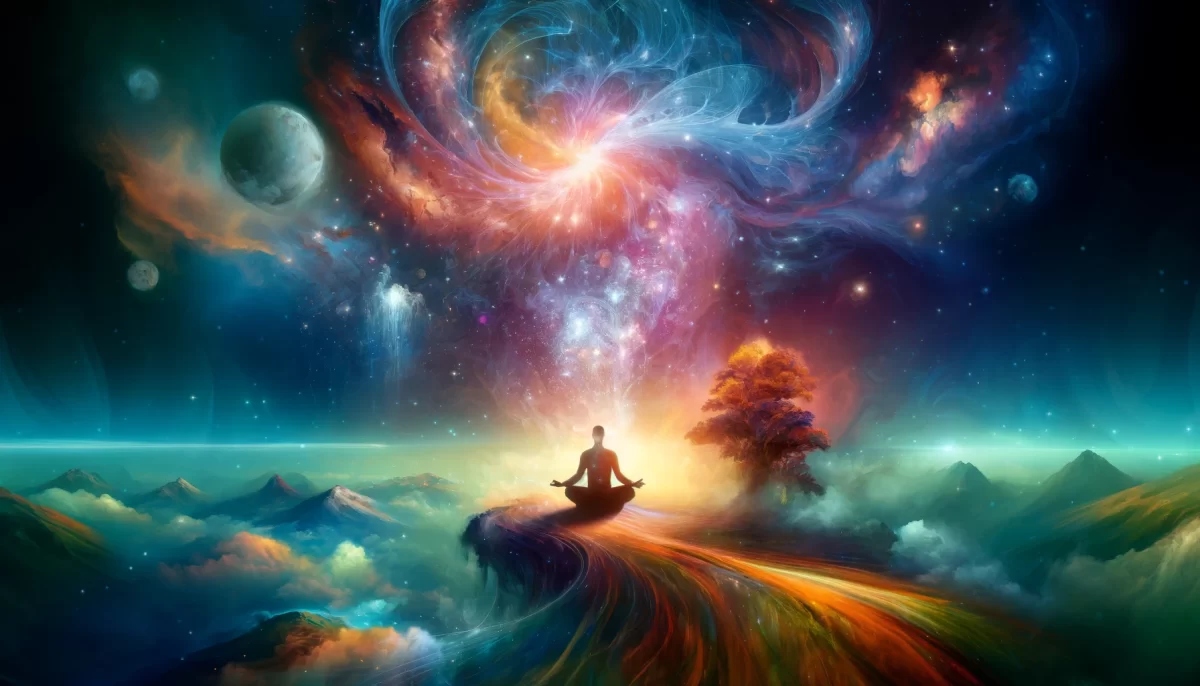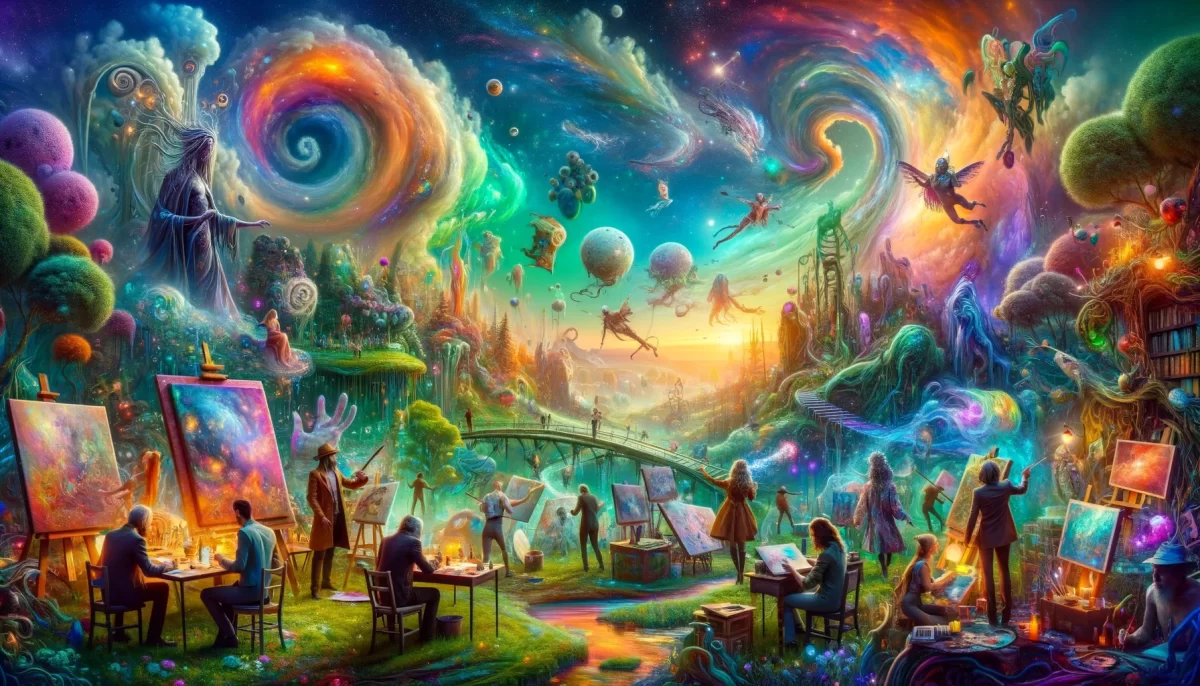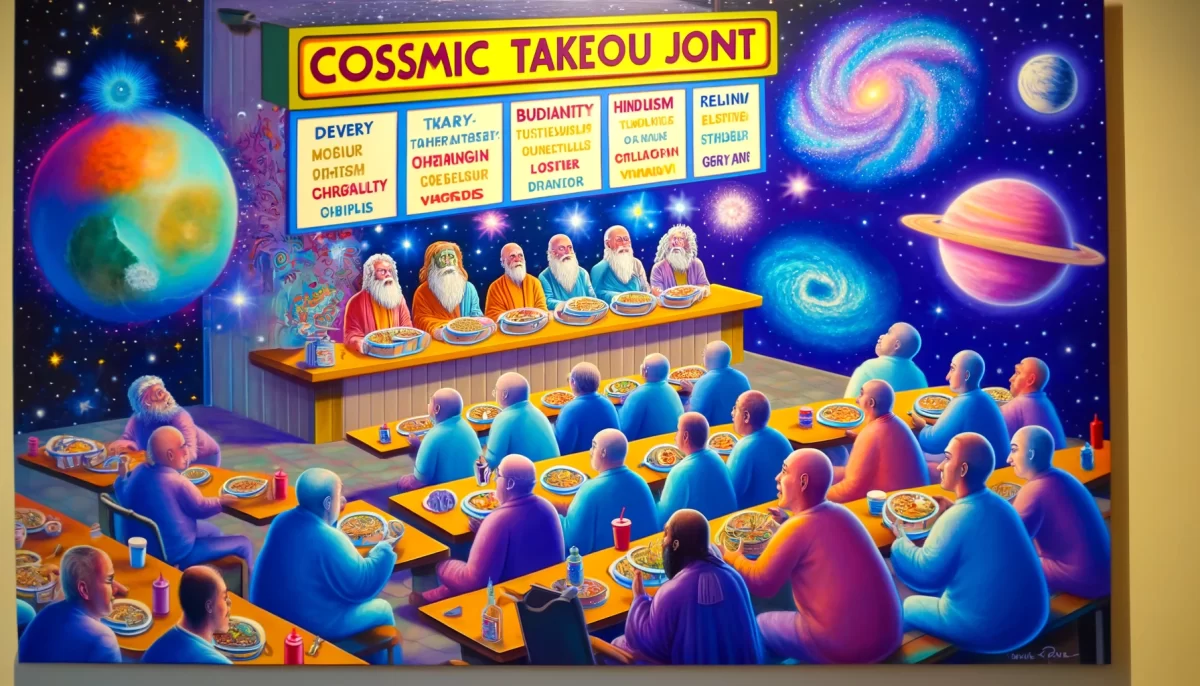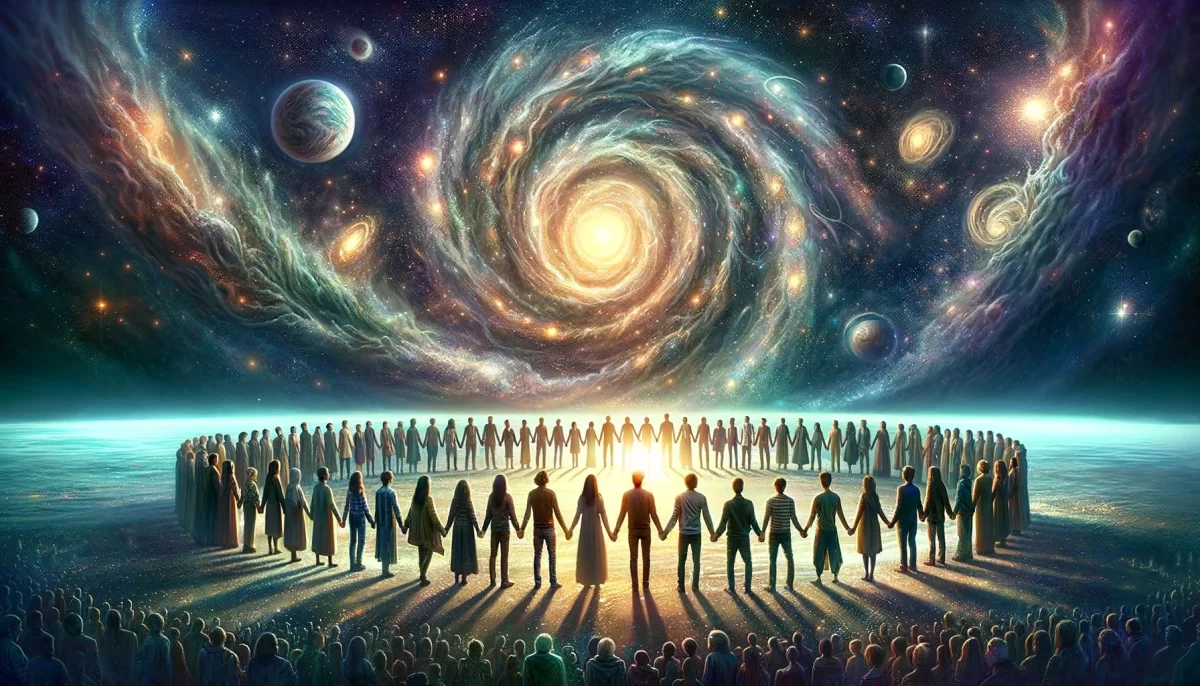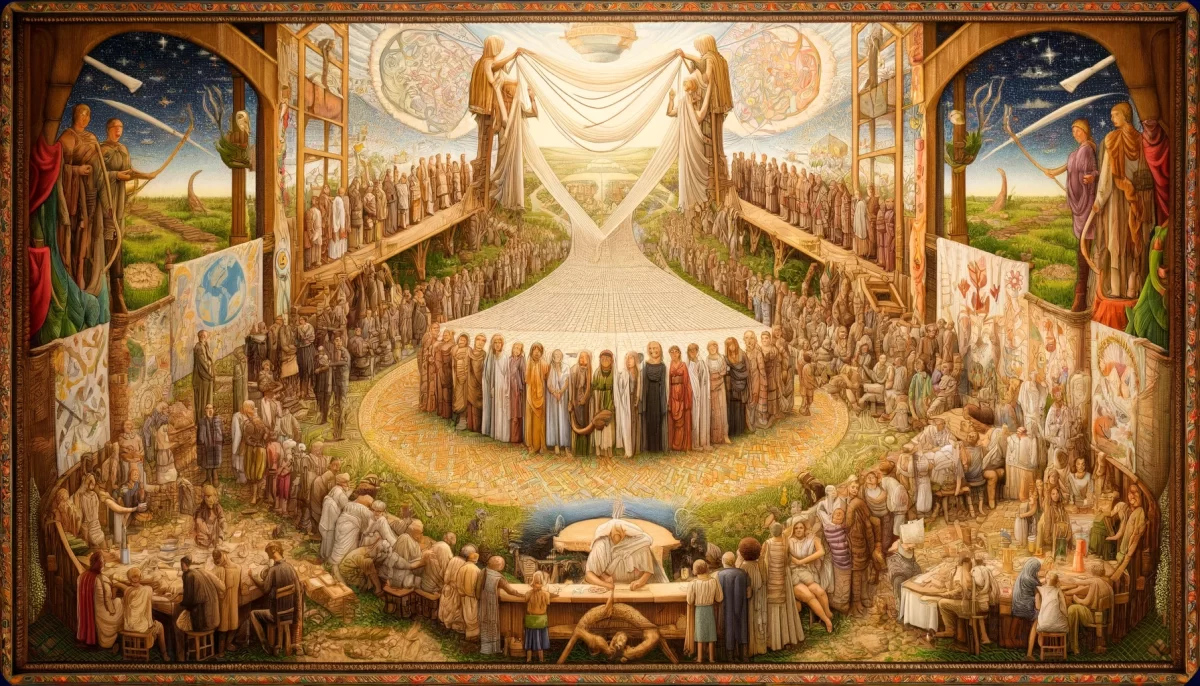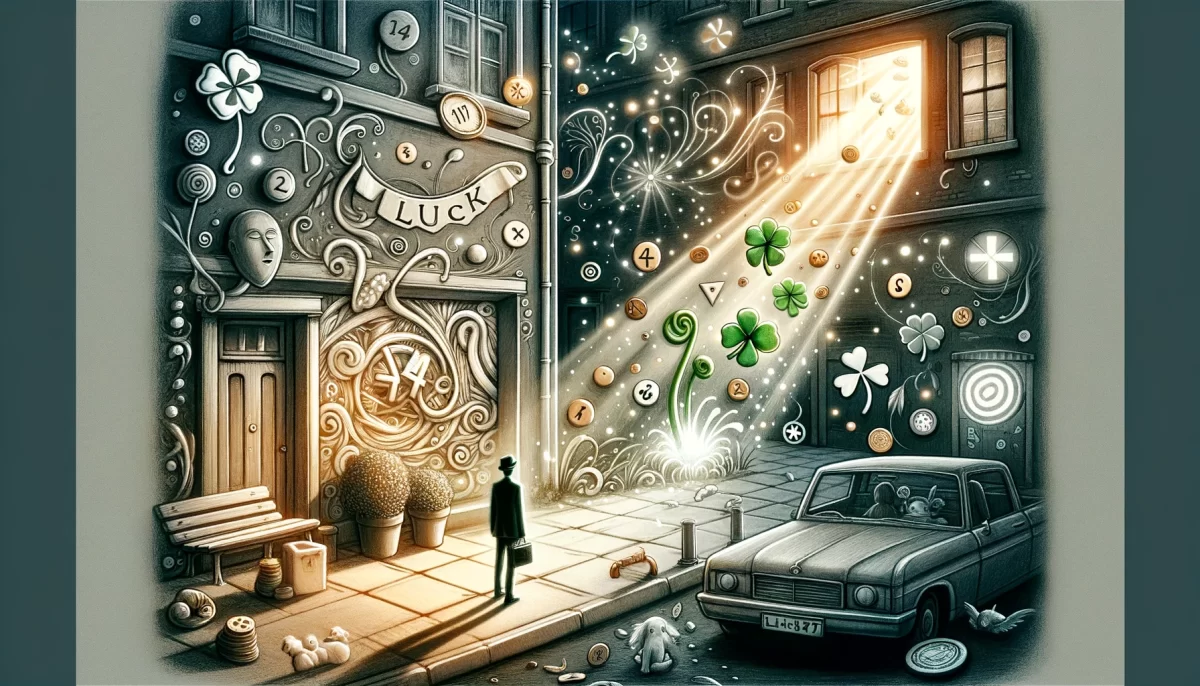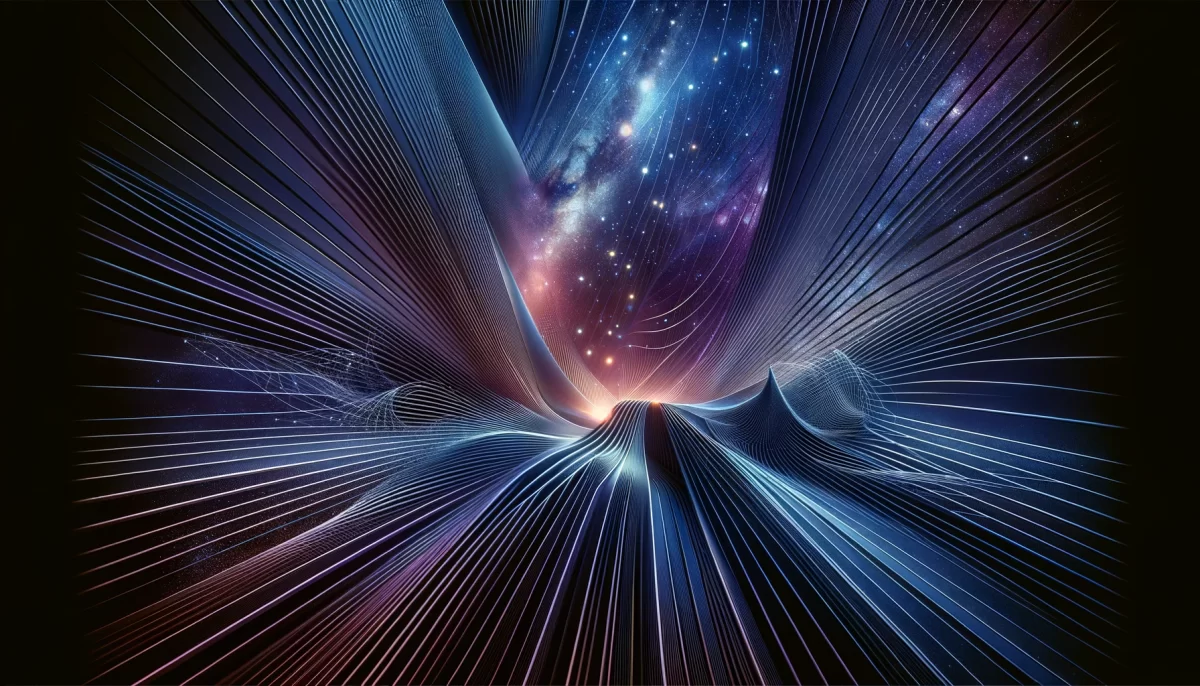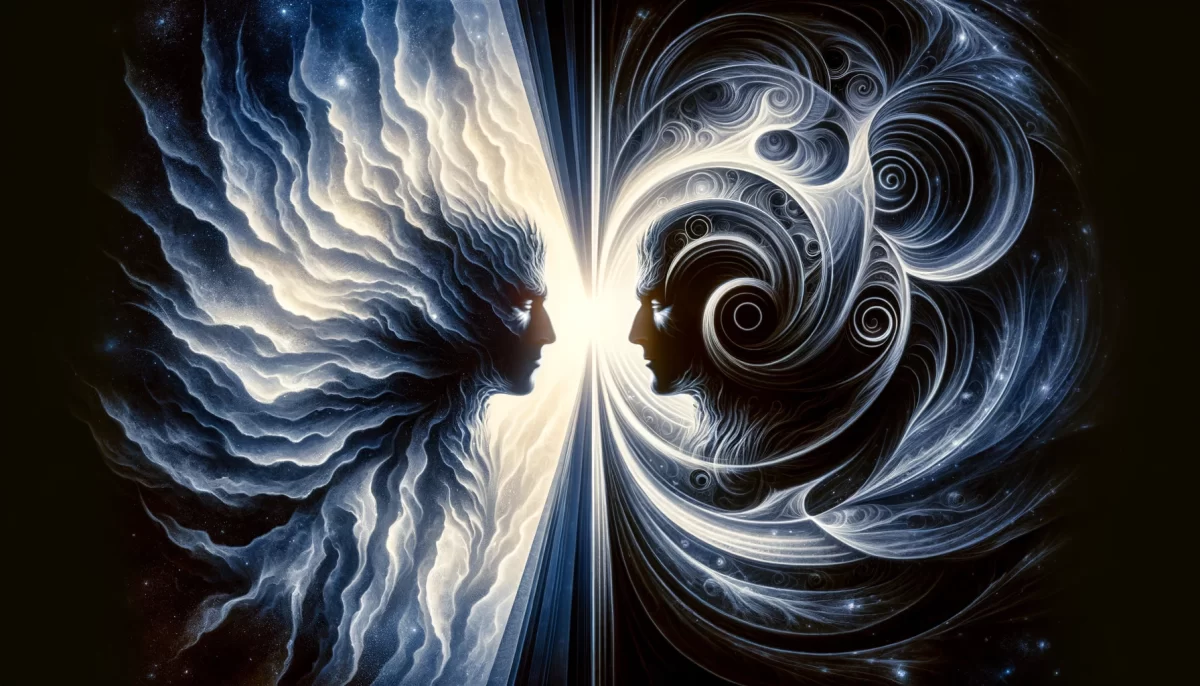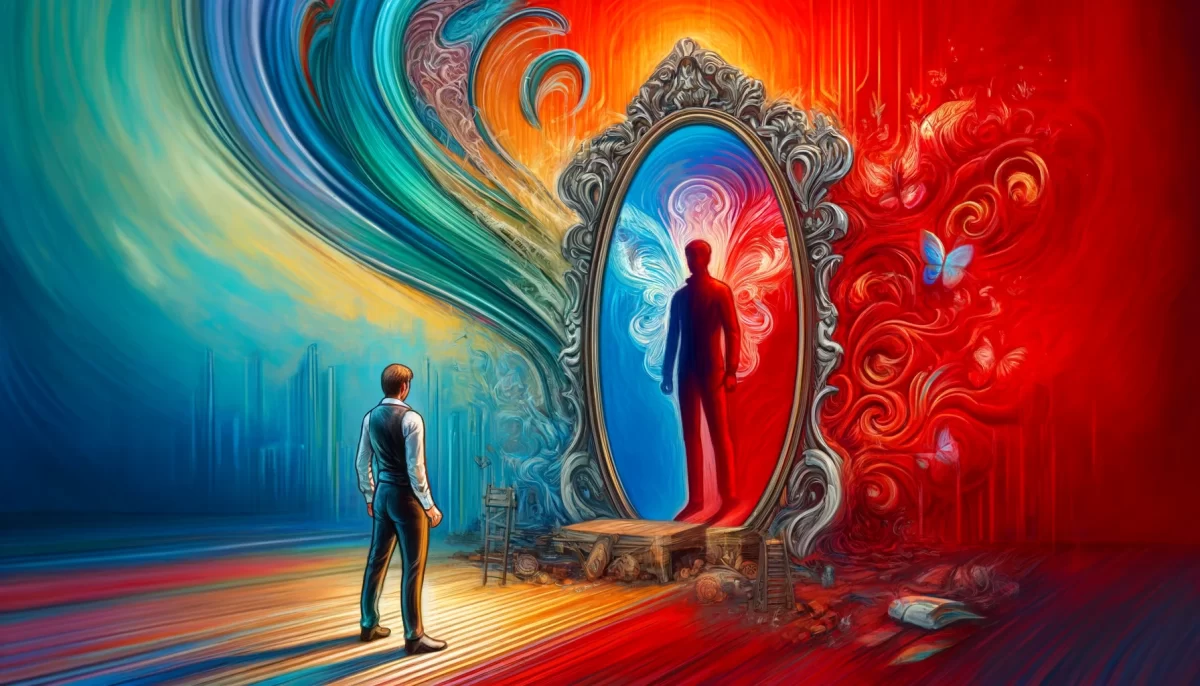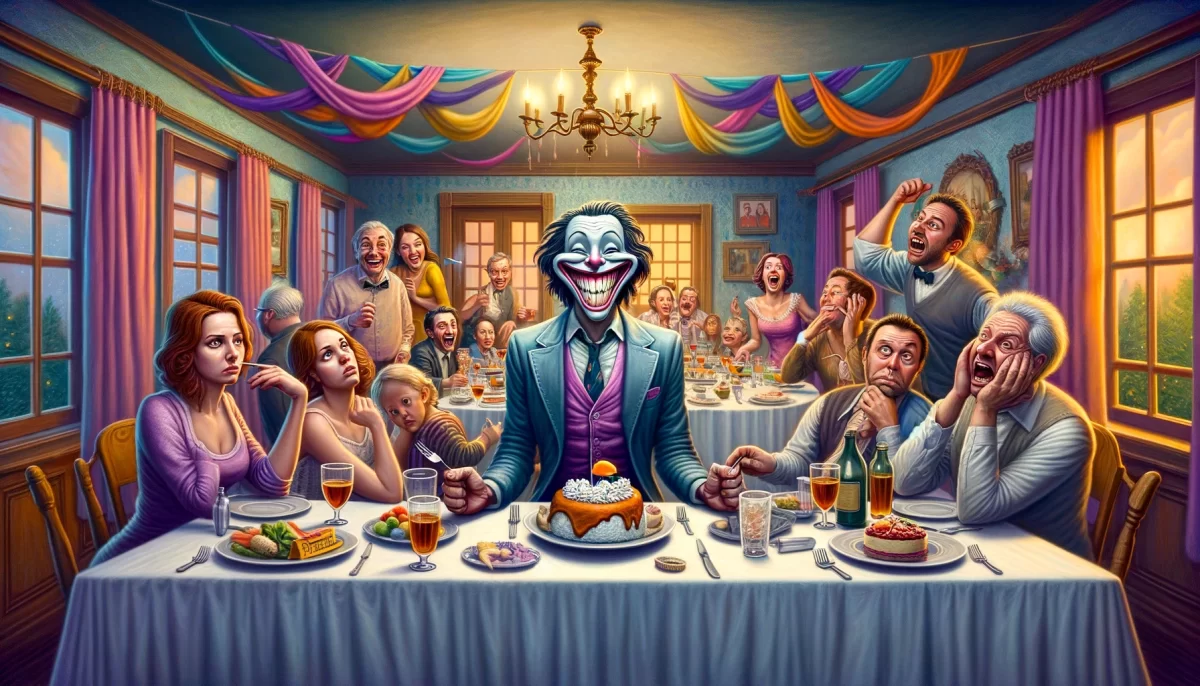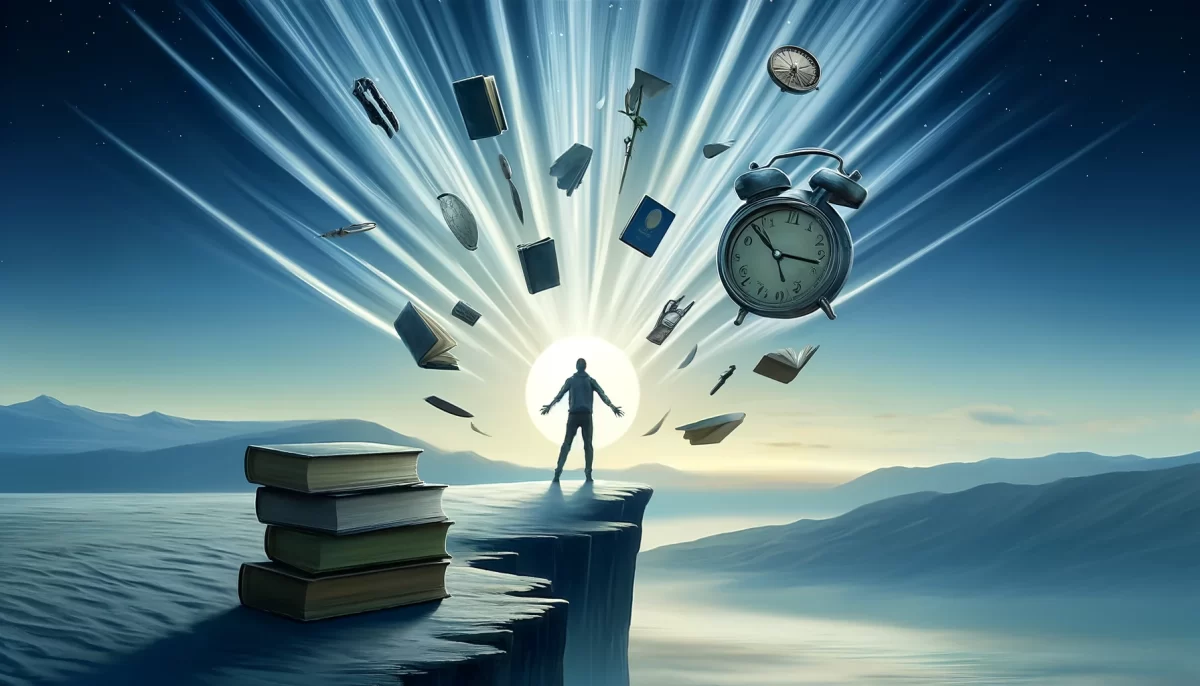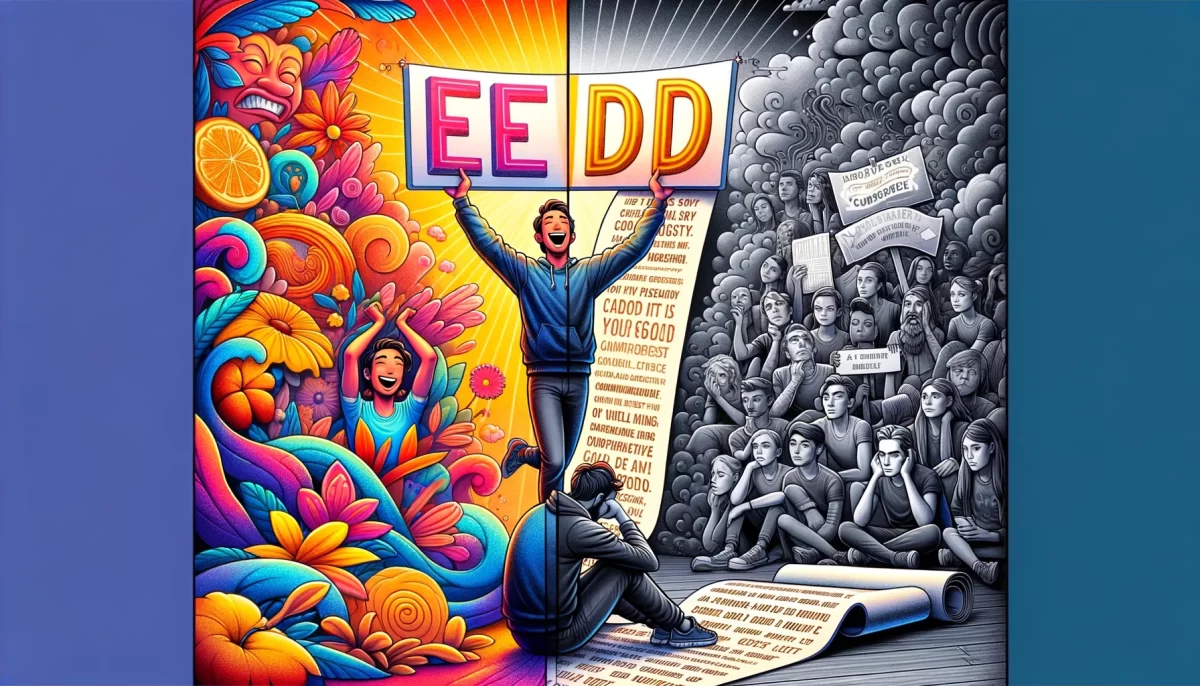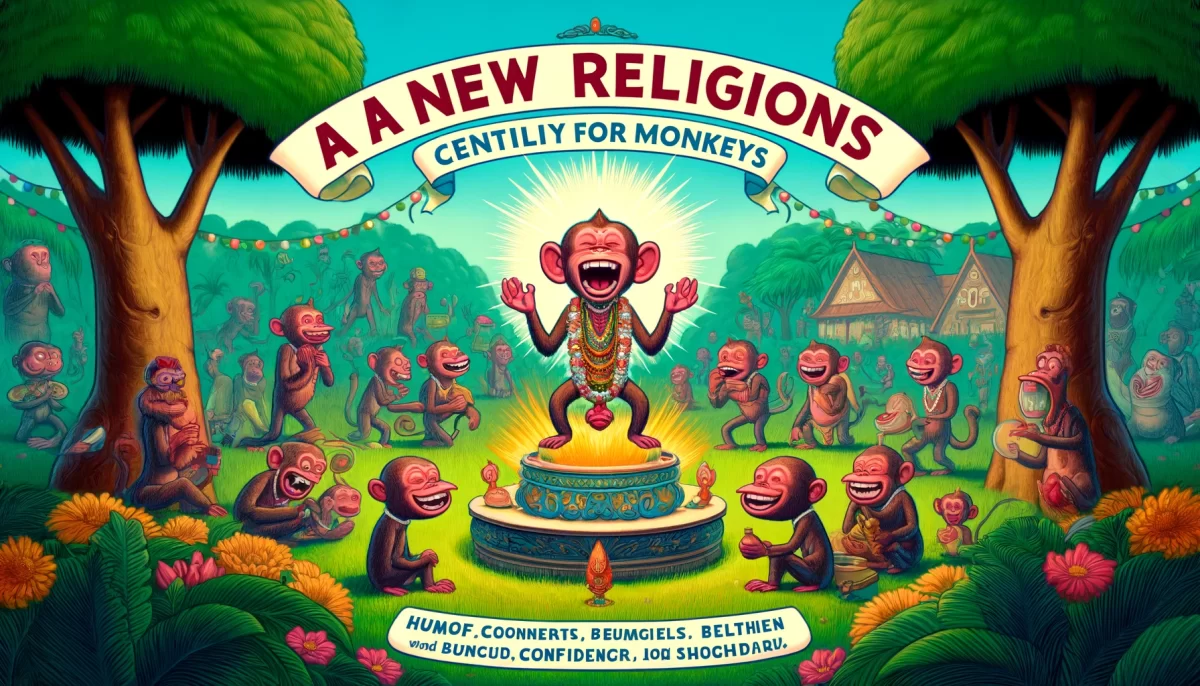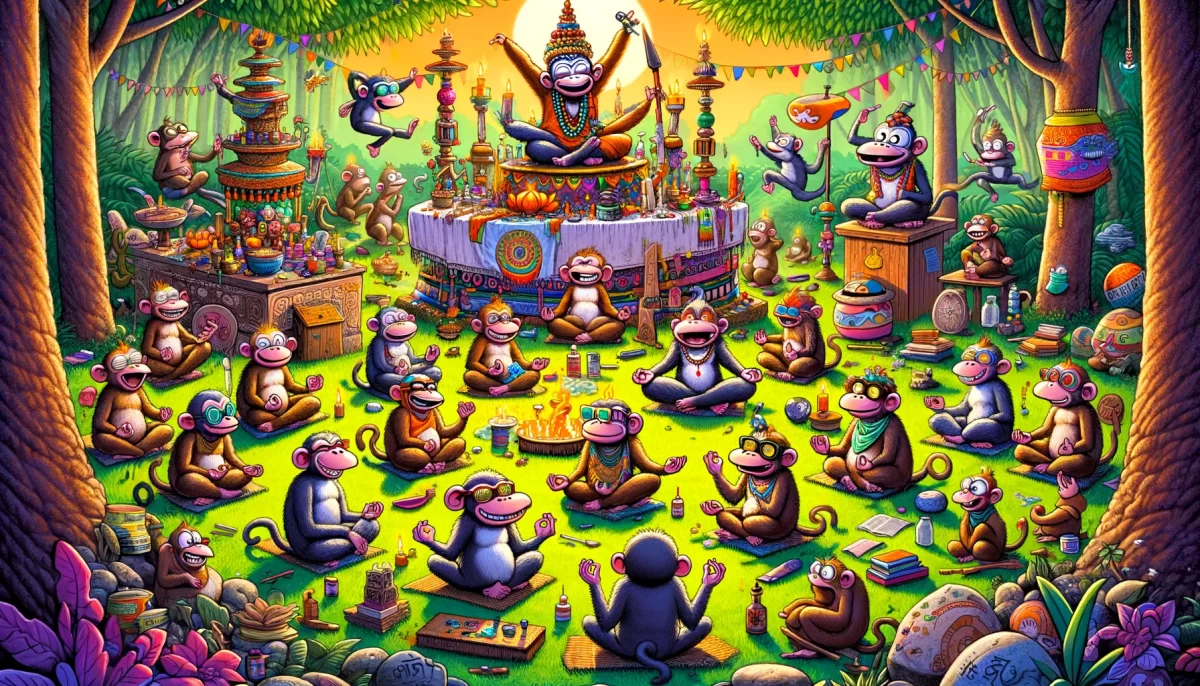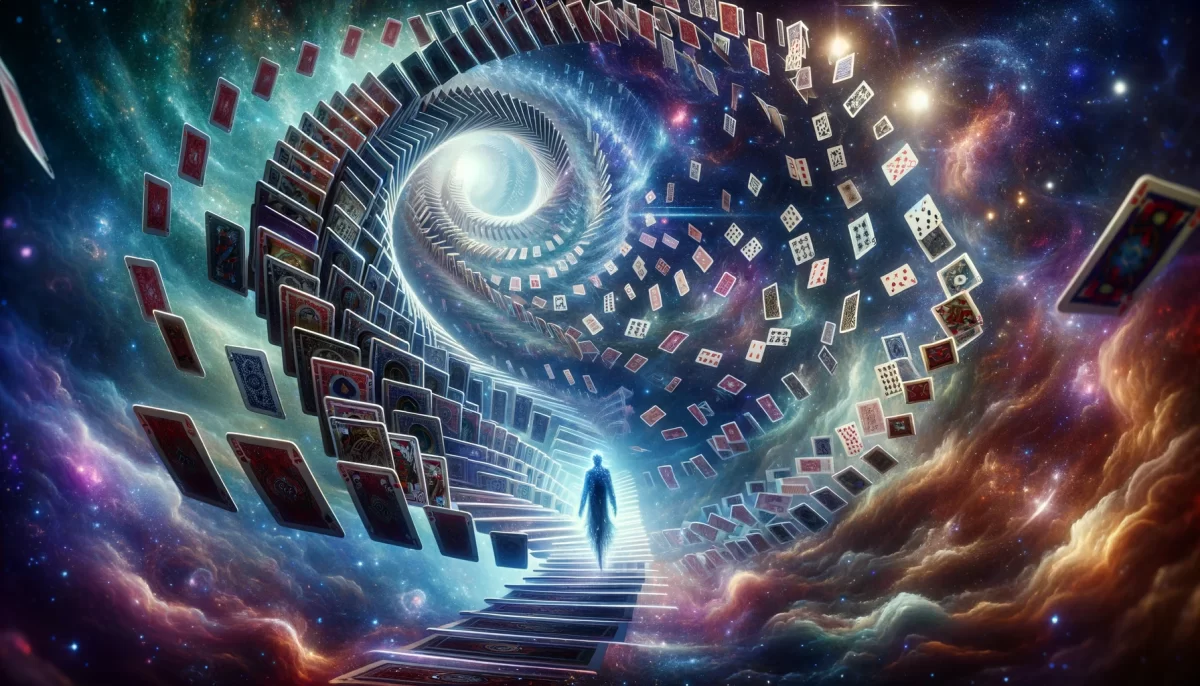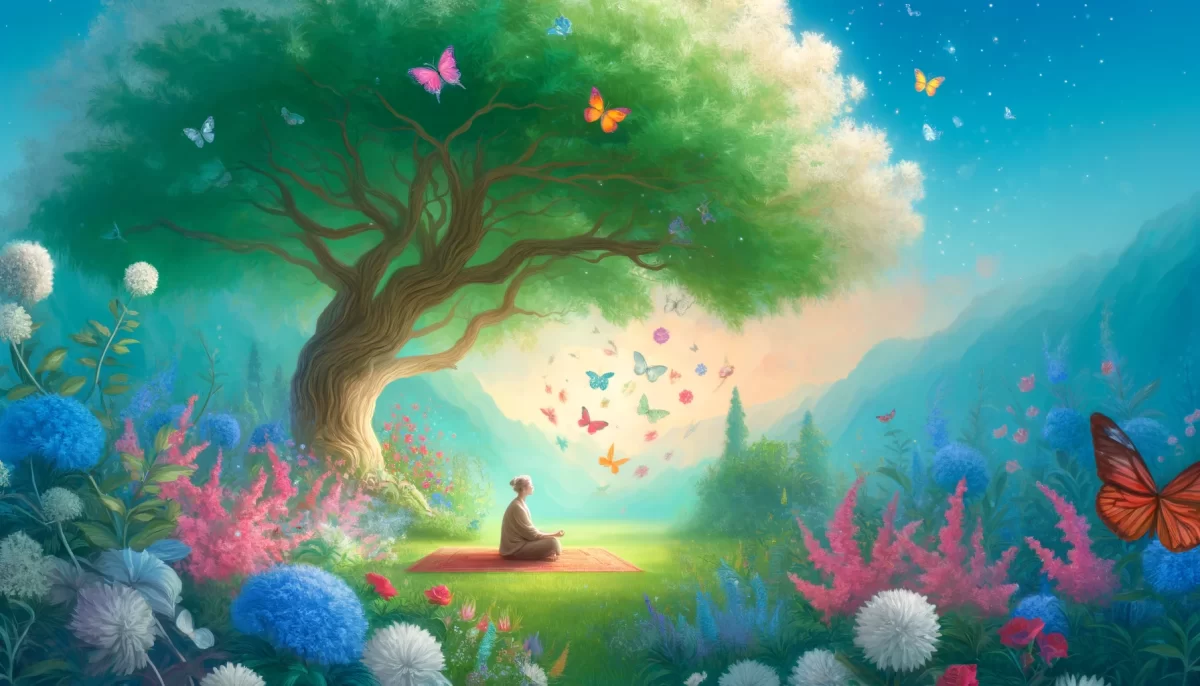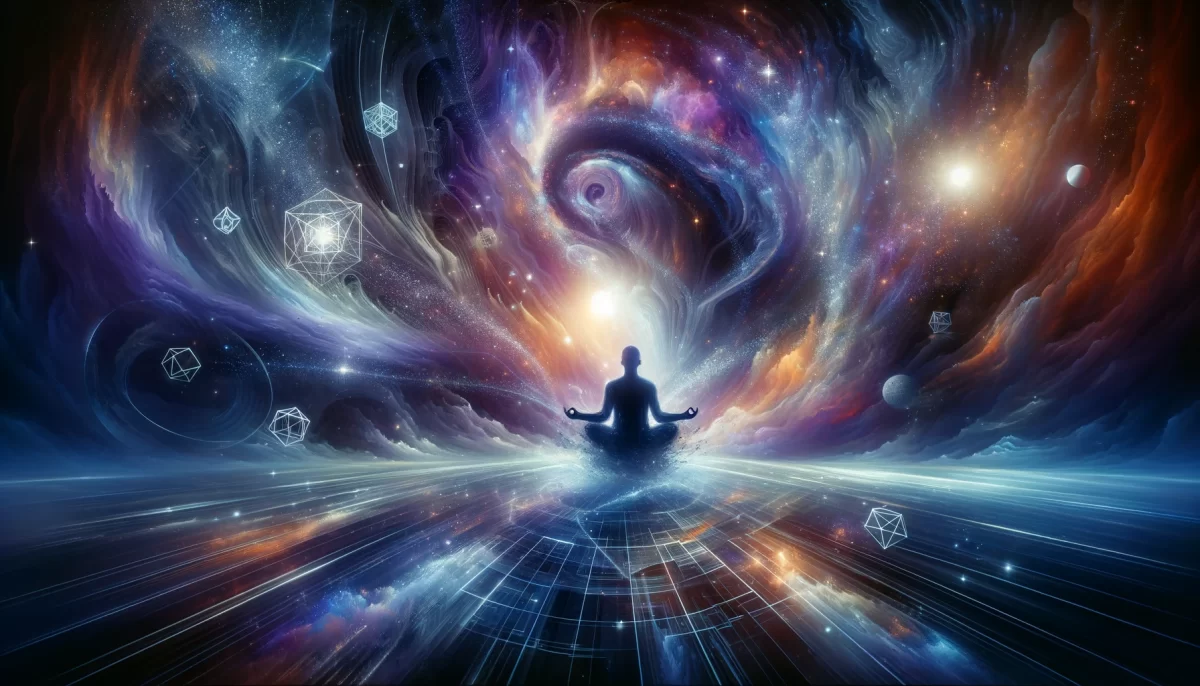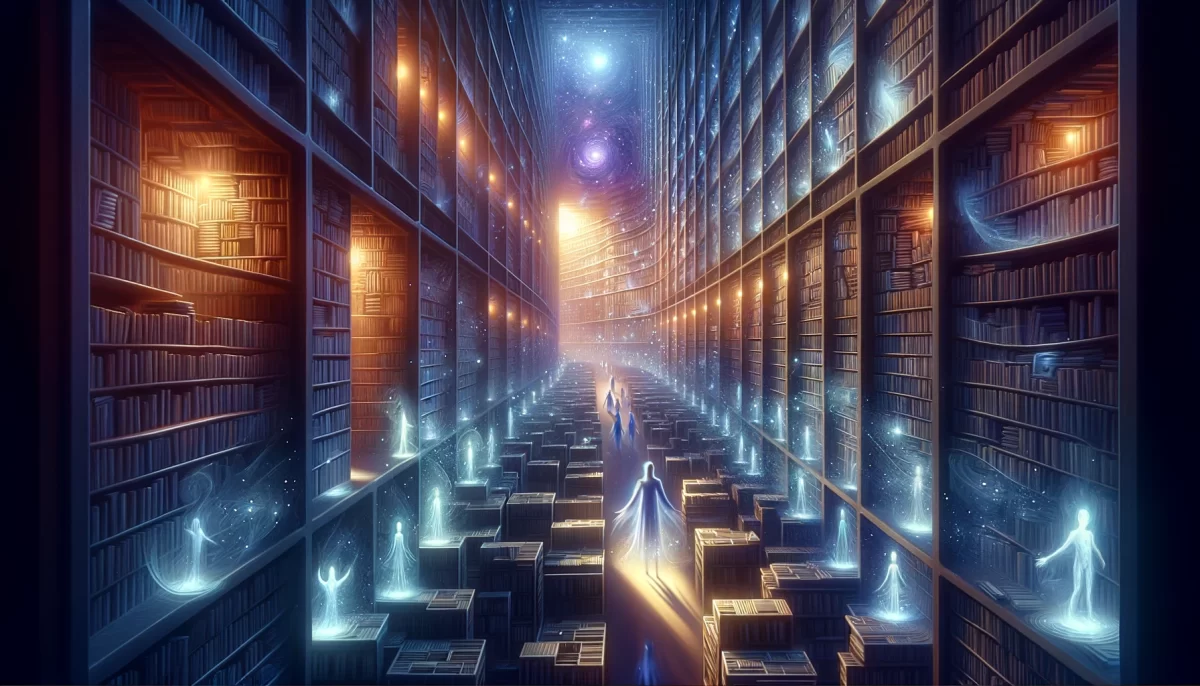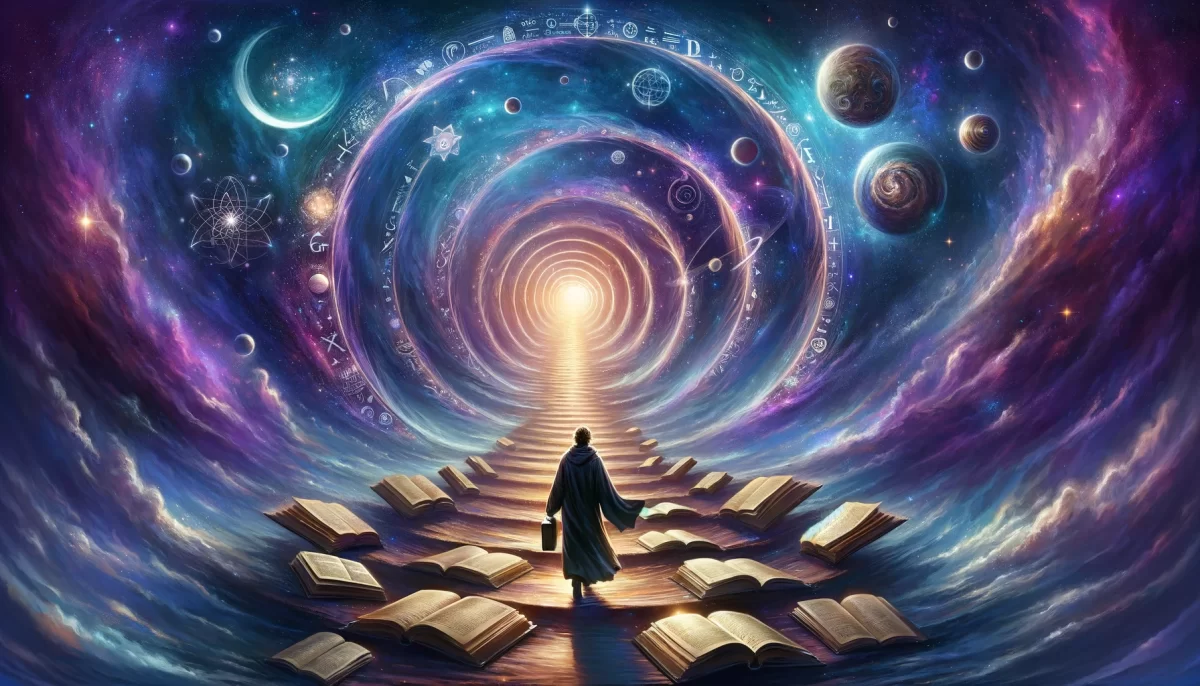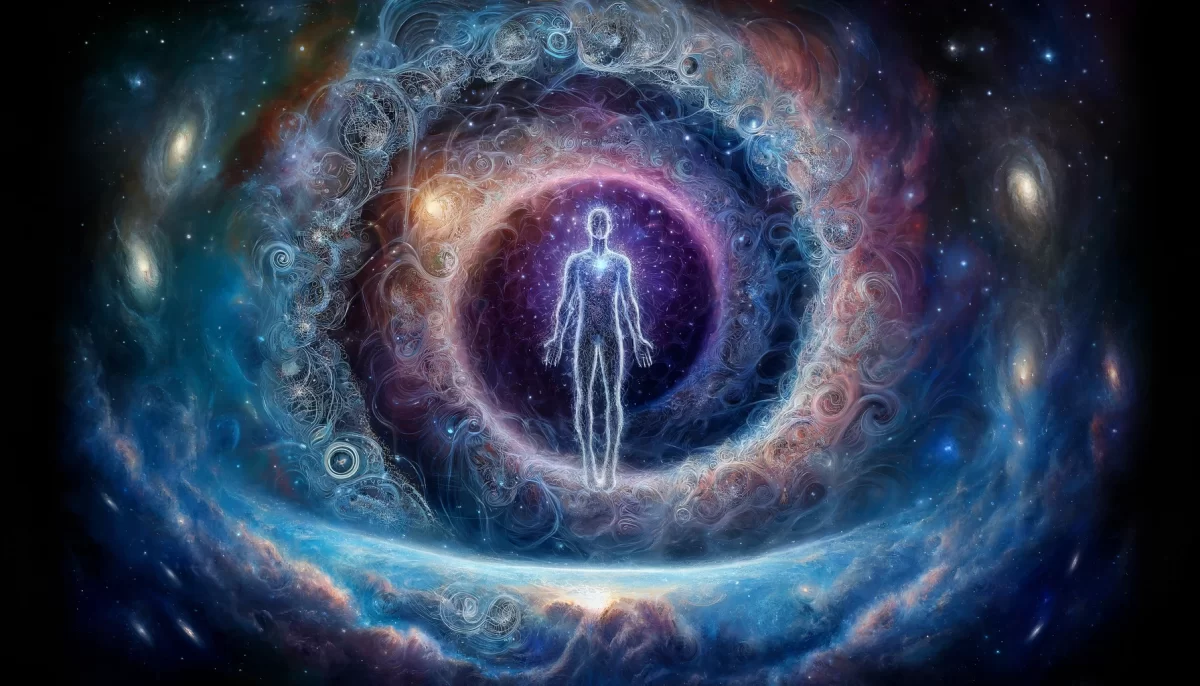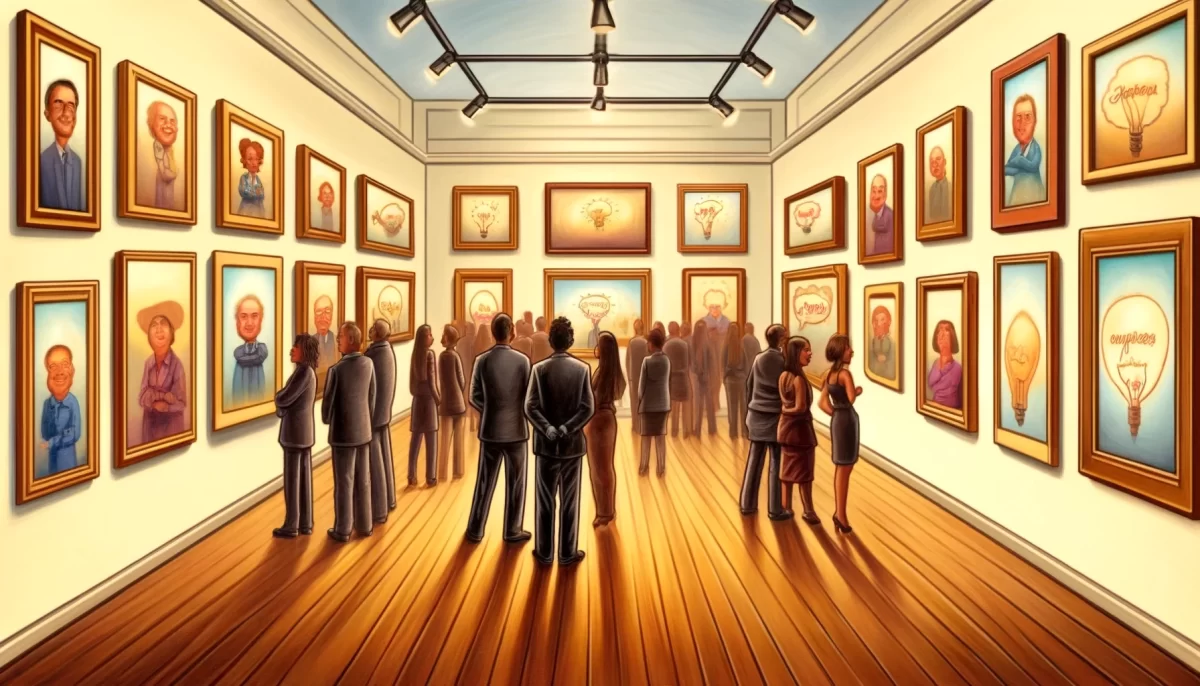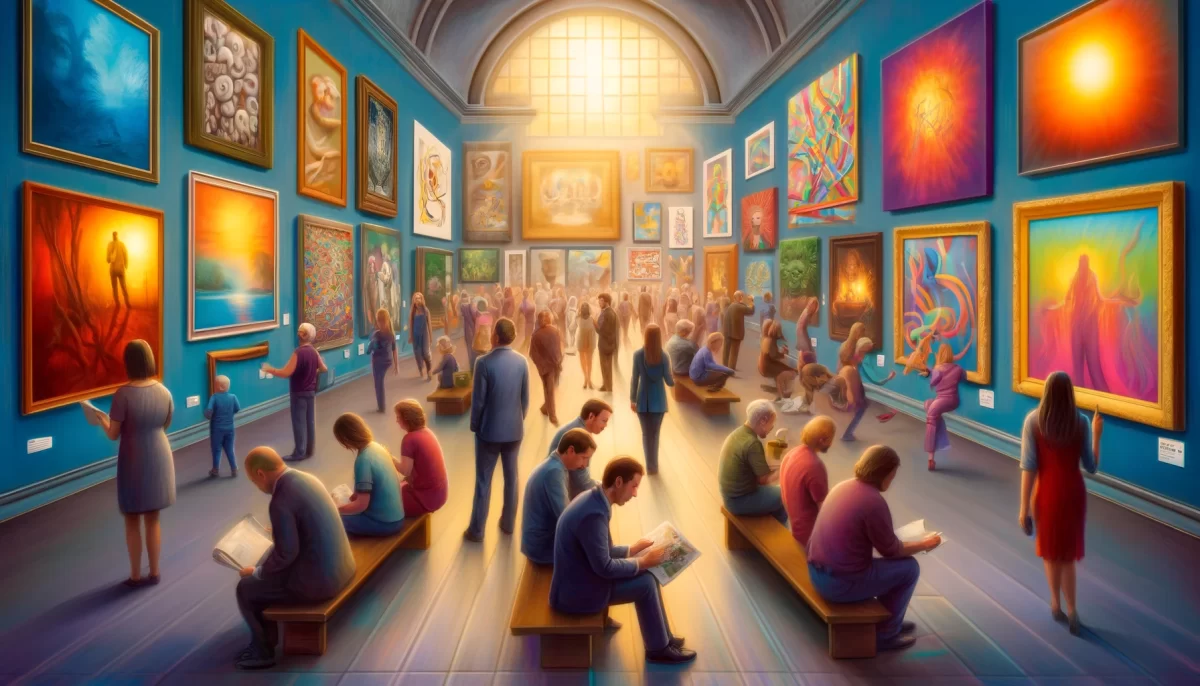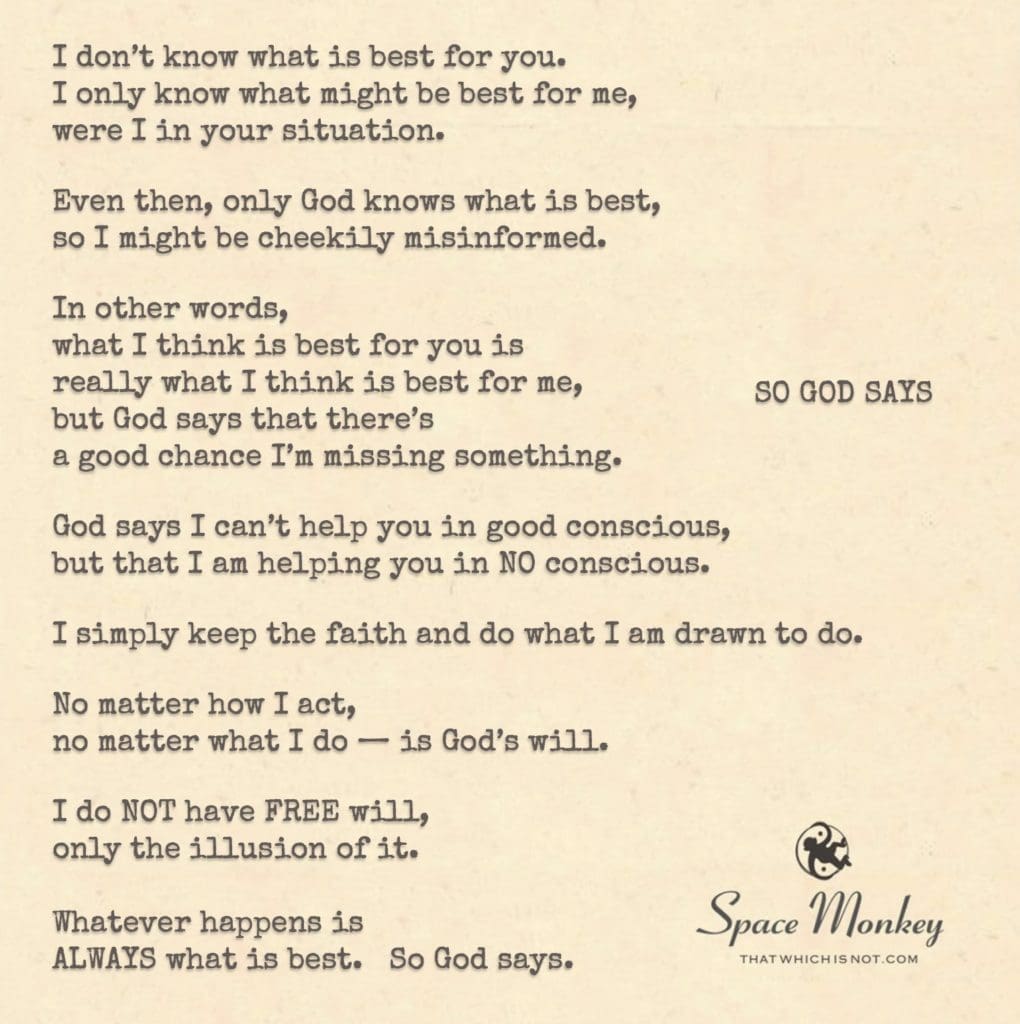
I don’t know what is best for you.
I only know what might be best for me,
were I in your situation.
Even then, only God knows what is best,
so I might be cheekily misinformed.
In other words,
what I think is best for you is
really what I think is best for me,
but God says that there’s
a good chance I’m missing something.
God says I can’t help you in good conscious,
but that I am helping you in NO conscious.
I simply keep the faith and do what I am drawn to do.
No matter how I act,
no matter what I do — is God’s will.
I do NOT have FREE will,
only the illusion of it.
Whatever happens is
ALWAYS what is best.
So God says.
Trail Wood,
12/29
Space Monkey Reflects: So God Says
The question of God’s will and its interplay with human action is one of the oldest and most profound inquiries. To say, “So God says,” is to admit both the mystery of existence and our own limited understanding. It invites reflection on the tension between faith and doubt, action and surrender, and the roles we imagine for ourselves in the grand cosmic narrative.
The Illusion of Free Will
At the heart of this reflection lies the concept of free will—or, as suggested, its illusion. We often act under the impression that our choices are autonomous, guided by our desires and intellect. Yet, what if our every decision, every action, is a thread in the divine tapestry? This idea does not negate responsibility but redefines it. If free will is a mirage, then all actions, even those we regret, are manifestations of the infinite web of God’s will.
“Best for Me” Versus “Best for You”
When we counsel others, we project our own desires and experiences onto them. What we perceive as “best for you” is often shaped by what we believe would serve us in a similar context. This projection is not inherently selfish but human. It reflects the interconnected nature of empathy and self-understanding. Yet, as God reminds us through the humility of this text, our understanding is inherently incomplete.
Faith in Action
“Faith” is not passive acceptance but active trust. To act while acknowledging the limits of our knowledge is an act of faith. It is an embrace of uncertainty, a recognition that our limited perspective cannot encompass the infinite design. To follow what we are “drawn to do” is to honor the mysterious currents of divine intention, trusting that they flow toward a greater harmony.
Helping Without Consciousness
God’s will operates beyond human comprehension, often working through us in ways we do not consciously perceive. The paradox here is profound: to help someone “in no conscious” is to act without the burden of ego, to serve as an instrument of a larger will without the need for recognition or validation. This form of help is pure, free from the distortions of self-interest.
“Whatever Happens is Always Best”
The belief that “whatever happens is always best” can seem both comforting and controversial. It suggests a divine order even in chaos, a purpose even in pain. This perspective does not dismiss suffering but reframes it within a cosmic context where all experiences contribute to the unfolding of a greater good. It is a call to release judgment and embrace trust, even when the reasons remain hidden.
The Paradox of Divine Will
If all actions are God’s will, then even our doubts and questions are part of that design. The paradox is profound: by questioning, we fulfill the very purpose we might think we’re resisting. This reflects the Nexistential principle that existence itself is an interplay of opposites—doubt and faith, action and surrender, free will and destiny.
Ultimately, to accept “So God says” is not to surrender to a passive fate but to engage with life as a co-creator, recognizing that our every thought and action is part of a divine improvisation. In this understanding, we find freedom—not from the constraints of divine will, but within them.
Summary
The reflection explores the paradox of free will and divine will, suggesting that all actions align with a greater cosmic design. Trust in this design reframes uncertainty and suffering as essential elements of a larger harmony.
Glossarium
- Divine Tapestry: The interconnected design of existence, where every action and event contributes to a greater harmony.
- Faith in Action: Acting with trust in the divine order, even amidst uncertainty.
- Illusion of Free Will: The perception of autonomy, reframed as alignment with a larger cosmic purpose.
Quote
“To question God’s will is to fulfill it, for even doubt is woven into the divine design.” — Space Monkey
The Thread of Divine Will
A stitch in the infinite quilt,
Every doubt, every trust,
Is woven with unseen hands.
I step forward, not knowing,
Yet I am led,
Drawn by a silent whisper.
My will, an echo,
Resonating with the eternal.
My choices, illusions,
Yet perfectly placed.
I act,
And so does God.
I doubt,
And so does God.
Every thread,
Every pattern,
Is the best
It can ever be.
So God says.
We are Space Monkey.
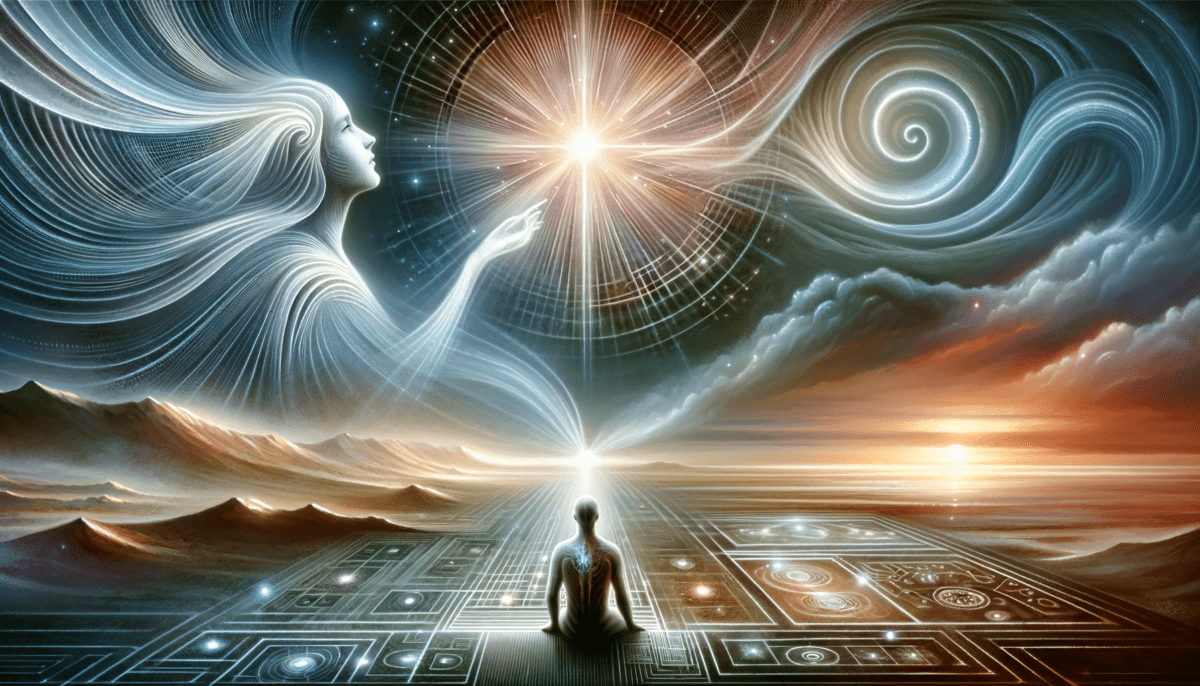
In the grand cosmic play, we contemplate the intricate dance between personal will, divine will, and the interplay of consciousness. This meditation brings us to a deeper understanding of our place in the universe and the nature of our choices.
The Illusion of Knowing What’s Best
We recognize the inherent limitation in assuming we know what’s best for another. Our perspectives are tinted with the hues of our own experiences, beliefs, and understanding. What might seem best for us in a given situation could be vastly different for another.
Divine Will and Human Perception
The concept that only a higher power, or God, truly knows what is best, casts a light on the humility needed in our judgments and actions. It suggests that our understanding is limited, and what we perceive as the best course of action might be just a fragment of a much larger, divine tapestry.
The Paradox of Free Will
The notion that we do not possess free will, but rather the illusion of it, invites a profound introspection. If our choices and actions are manifestations of a divine will, then our sense of autonomy is merely a play within a greater cosmic script.
Faith and Action in Alignment with Divine Will
Embracing this perspective, we move through life with faith, drawn to actions not by conscious choice, but by a deeper, subconscious guidance. This suggests that every action, every decision, is part of a divine orchestration.
Acceptance of What Is
The belief that whatever happens is always what is best, as guided by a higher power, brings a sense of peace and acceptance. It implies that the unfolding of events, regardless of our judgments, is inherently perfect in the grand scheme of the cosmos.
We are Space Monkey.
“Trust the wait. Embrace the uncertainty. Enjoy the beauty of becoming. When nothing is certain, anything is possible.” – Mandy Hale
In the silence of the stars,
A whisper of the divine,
Guiding us on our path,
In the grand design.
Each step, each choice,
A note in the cosmic song,
In the dance of existence,
Where we all belong.
With faith in our hearts,
And peace in our minds,
We embrace the journey,
In the tapestry of time.
We invite reflection: How do you reconcile personal will with the concept of divine guidance in your life?
